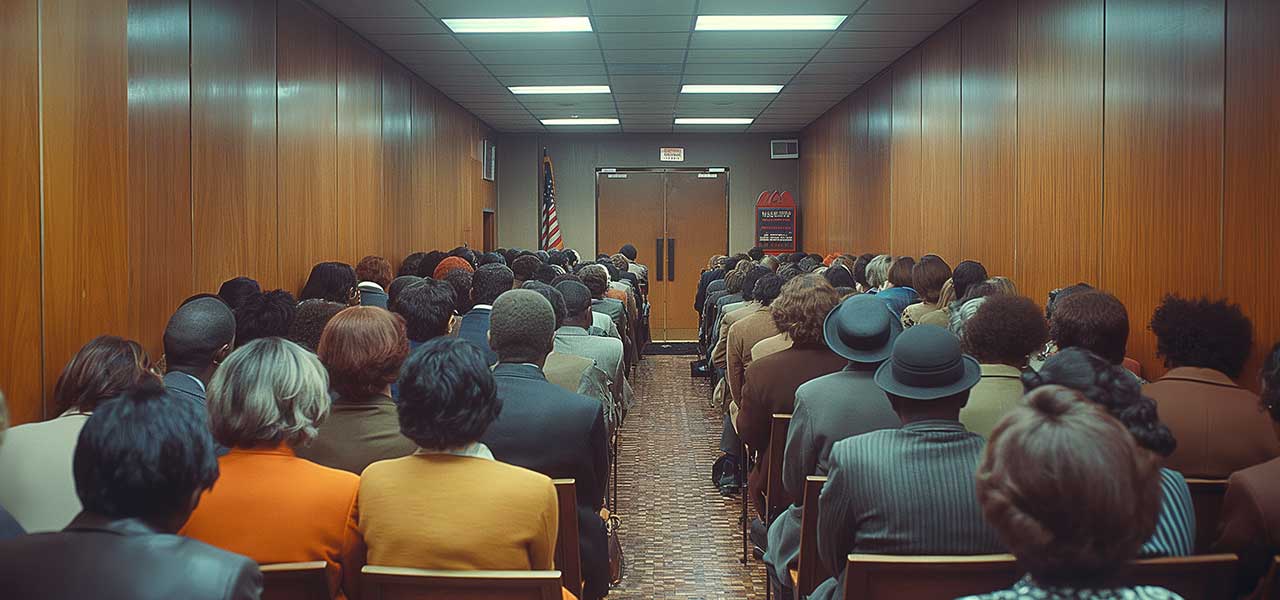We are lawyers who help points-and-miles enthusiasts bring claims against banks related to the miles-and-points hobby. In these posts, we’re looking forward to answering your questions and providing some general tips to help DoC readers. If you want to add your questions to the list, chime in in the comments of this post. Before we get to that, here’s a a brief introduction:
Who is Alex?
Alexander Bachuwa is an attorney licensed in New York and Arizona who practices in the area of consumer protection law. You might know him from his Fine Print posts on The Frequent Miler or from his humorous points blog, The Points Of Life. He once came very close to completing a 2-pound cheeseburger challenge, but was foiled by his arch-nemesis, tomatoes.
Who is Darr?
Alexander Darr is an attorney licensed in Ohio and Illinois. Darr is the owner of the aptly named Darr Law Offices LLC and can be found online at DarrLawOffices.com and AlexanderDarr.com. He is a miles-and-points enthusiast, but not an addict. He felt like the winner of a two-pound burger contest when he spent 5 nights at the Grand Hyatt Kauai for his honeymoon for 100,000 Hyatt points, instead of spending thousands of dollars.
The Question
“Hello Alex,
I’m sure you must have seen quite a number of interesting cases over the years. By the time they reach you, the damage is often done and they are seeking relief. What would be one piece of pro-active advice you’d give to the Miles and Points community that may have helped to avoid some of the cases you’ve seen?”
Our Response
Lawyers aren’t magicians. We don’t wave a wand and change the facts to win cases. We present the evidence available to us to best convince a judge or arbitrator that our client should win.
To do the best job, lawyers need to have the best evidence to support their client and defend against the opponent’s arguments. That’s why the number one thing I tell any client when he is in a dispute or sees one on the horizon is to document and keep good records of what happened.
Here are a few simple recommendations to help build your case:
Screenshots
Many banks allow users to “Live Chat” with customer service. This is a great way to avoid long hold times on the phone. But there isn’t always a good record of the chat. Some banks give you the option to email a copy of the chat conversation to yourself at the end, and that’s great when it works. But the surefire way to document your live chats is to take screenshots.
I recently had an arbitration where the client had done a Live Chat with the bank. The bank promised that my client could keep his signup bonus points if he closed or changed the credit card. My client took a screenshot of the chat and then closed the card. The bank took his points. We were able to resolve the claim in my client’s favor thanks to the screenshots.
Dealing With Paper
If you’re a points-and-miles enthusiast, you get lots and lots of “junk” mail and other paper from banks. But not all of it is junk, and some of it can be useful. If you can come up with a system for keeping all of the original paper, that’s great. For me, I like to have less paper in my office, but I also like to keep good records. That means digitizing a lot of paper. That task can be a breeze with the right tools.
My office uses the Fujitsu ScanSnap ix500–it’s probably overkill for most consumers but works great. You’ll find similar offerings from other scanner manufacturers (Epson, Brother, etc.). The market has plenty of smaller, more portable options as well. And a full-blown scanner may be too much for your needs, because your iPhone or Android device can make a pretty great scanner. There are free apps that get the job done and paid apps with bells and whistles.
Whatever your needs, there’s a solution for you to keep good records of the physical paper and mail you receive as part of the points-and-miles hobby. Find what works for you and use common sense to keep the stuff that might be helpful down the line.
For example, my partner had a case where his client received two pieces of mail about his credit card. One piece of mail congratulated the client for being a loyal and excellent customer, encouraging him to keep spending money on his credit card. The other piece of mail said his spending wasn’t allowed, the account would be closed, and his earned rewards would be forfeited. Because the client kept good records, my partner was able to present a compelling case to the arbitrator that the consumer should get to keep his points.
One other piece of paper worth saving is the card’s terms and conditions. We’re all guilty of getting that new, shiny credit card and throwing away all of the included paper. But those included terms and conditions are the contract that governs your relationship with the bank. They’re important! If you have a dispute a few years down the line, banks have been known to try to use current terms and conditions to support their position, when the original terms and conditions are more helpful for the customer. If you have those original terms and conditions you can use them to support your argument.
Recording Phone Calls
Depending on the State where you live, where you’re calling, and other considerations, it may be illegal to record a phone call without everyone’s permission. Please make sure you know and understand the applicable rules and laws before you record a phone call.
There are (many) apps designed to record phone calls, especially on Android. Phone calls using your PC (Skype or Google Voice, for example) often include a built-in record feature. For me, the easiest thing to do is make my phone call with speaker phone and use a separate device to record the conversation. It’s not an elegant solution, but it works well and is less prone to issues.
One case where a phone call recording was essential to the win involved a refund of a credit balance from a cable provider. The cable provider owed a credit balance of approximately $200 to the client. The client canceled his service and never received his credit balance. The client called the cable company and recorded the call. In that call a representative assured the client that there had been an error, but that it had been resolved and that he’d definitely be getting the refund soon. Unsurprisingly, the refund never came, leading to an arbitration. In the arbitration, the company took the position that the refund was never owed, and so never paid. After sending the recording to the cable company, they promptly settled the case.
Final Thoughts
Be Prepared
The best time to collect information and evidence is before a dispute. In my screenshot example, my client could have taken the live chat representative at his word and simply canceled his account. If he had done that without saving a screenshot, his case would have boiled down to “he-said-she-said.” But my client saved the screenshot and made his case. Collect your evidence as you go along. If you never need it, that’s great; if you do need it, you’ll be happy you kept good records.
A naysayer might suggest that this is a pointless waste of time and unnecessary because the banks have records. Keeping some good records for evidence doesn’t have to be expensive or time consuming. Screenshots are free. Scanning apps can be free. And online storage is free or cheap. The key is making small adjustments to your hobby to keep better records. In the example of the case-winning screenshots, those screenshots took a few seconds to take and store away, but they won the case.
Second, you shouldn’t trust the bank and their record collection procedures. I’ve had many cases with banks and other businesses where they are unable to pull up phone call recordings from as little as 12 months prior. Take ownership of your case and the evidence that supports it.





